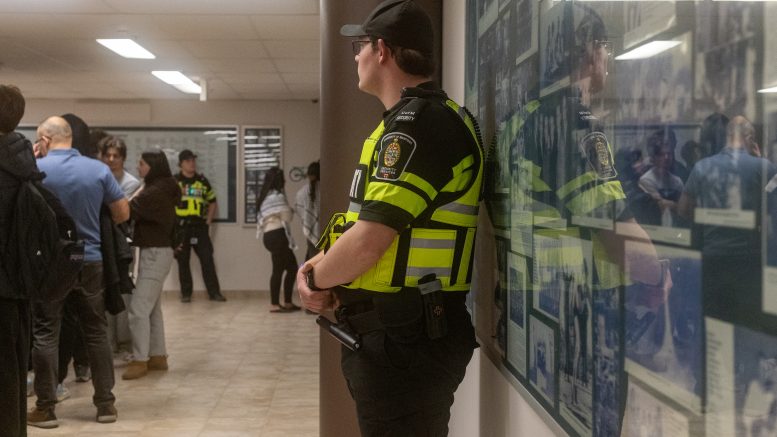After the April 2023 announcement of increased security at U of M, institutional safety officers (ISOs) will be present on campus beginning May 1.
The Manitoba legislature amended the police services act in 2021 to allow health campuses, colleges and universities in Manitoba to have ISOs present. The legislation outlines the role of ISOs as officers who are responsible for working with police to ensure safety on Manitoba campuses, acting as the initial responders to situations, facilitating police involvement, “enforcing” certain pieces of legislation and “exercising the powers” under specific acts.
The provincial act does not require campuses to have ISOs, rather it gives institutions the option and guidelines to implement them.
Director of campus security and safety with security services Gord Perrier said the choice to implement ISOs at the U of M was a way to address safety concerns that “may not require a police response.”
Perrier described the U of M as a “city within a city” that has issues like “homelessness and mental health” that “need to be addressed.” He said the implementation of ISOs “fills that gap.”
“Our goal here is to enhance safety for the community,” he said.
Perrier explained that ISOs will have the authority to “take some action” over Manitoba acts such as the Intoxicated Persons Detention Act and Trespass Act. Previously, security personnel were only able to “encourage people to leave” or call police, Perrier said.
Although ISOs will have more powers, Perrier said there is still a focus on “compliance” and “de-escalation.” Perrier also mentioned that security services does and will still rely on services such as the Sexual Violence Resource Centre or the Main Street Project to help with campus safety.
When ISOs begin on May 1, they will have badges on their uniforms that identify them as ISOs or “peace officers.” Campus security guards who have not yet completed ISO training will continue to be on campus and be identified as such but Perrier said all security guards will eventually be ISOs.
Perrier explained that an “ISO is a peace officer, but not all peace officers are ISOs.” According to the legislation allowing ISOs, “institutional safety officer[s have] the power and protections of a peace officer while excising powers and performing duties.”
ISOs will have “high visibility uniforms” equipped with protective vests, handcuffs and defensive batons — tools that Perrier said campus security has had for decades. With the launch of ISOs, Perrier added that a “defensive gel propellant” has also been introduced.
The ISOs on campus have gone through a specific ISO training program, which includes around two months of combined classroom and field training and a one-year probationary period, Perrier said.
Engineering student Parker Chen said he “generally” feels safe on campus, but worries the introduction of ISOs might “set a precedent” when instances of violence occur on campus.
He does not think he will necessarily feel safer with ISOs on campus, and he would “need to see action” before he could say he would.
“New sense of power may be frightening” for marginalized students on campus, Chen said.
Perrier said “it’s very important that security, people in security acknowledge that, have at the front of their mind and that some people may feel less safe in other situations.”
He said it is important that security services are “mindful of” the “racialized and vulnerable community members [that] feel disproportionate rates of law enforcement violence.”
Perrier said there is a “need to be really careful about how security services are presented and “respond to incidents on campus,” and “how we balance that.”


